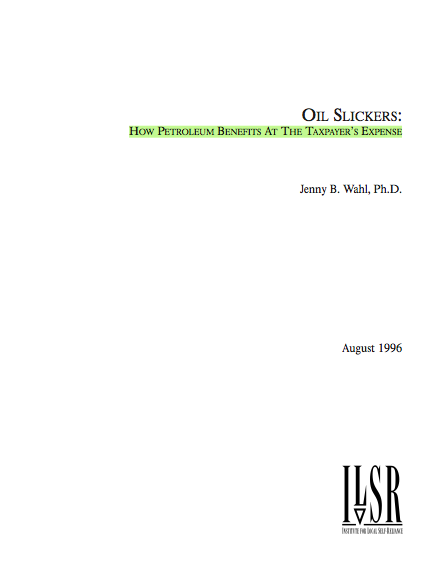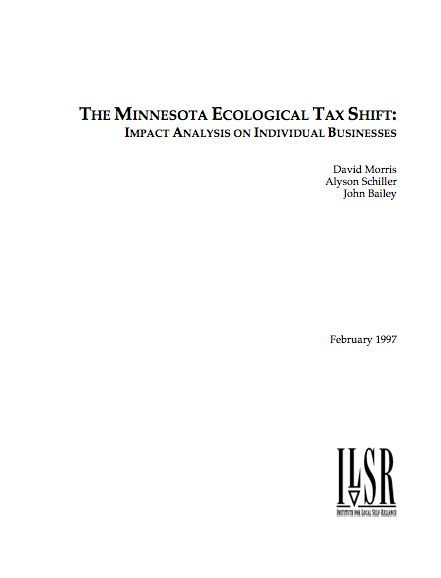This March 1997 report by John Bailey and David Morris examines how the proposed $1.5 billion tax shift in Minnesota would impact low income households and offers ways to mitigate the net effect of the tax shift on these households.
The Energy Efficiency and Pollution Reduction Act (EEPRA) is a revenue neutral measure proposed in Minnesota to increase energy taxes by $1.5 billion and to reduce existing taxes on labor or income by an equal amount. The bill is also sectoral neutral, that is, the additional revenues generated from the business sector will be returned in business tax reductions and the additional revenues generated from the household sector will be returned to the household sector. Business taxes will be reduced through a 20 percent reduction in the employer contribution to FICA (Social Security and Medicare).
An important question in designing a tax shift is its impact on low income households. The proposed carbon tax is in effect a sales tax and a sales tax is usually regressive. However, in this case there are two sides to the equation: a tax increase and a tax decrease. Therefore EEPRA can be designed to hold harmless or even to aid low income households.
At present EEPRA is structured to return the increased energy tax revenue as an equal payment per household. Dividing the $633 million in increase energy tax revenue generated by the $50 per ton carbon tax by the number of households in Minnesota (1.7 million) we arrive at the figure $370 as the rebate or tax reduction per household.
Structuring the tax shift in this way actually benefits low income households. The reason is that although low income households spend a higher percentage of their income on energy than do wealthier households, they use in absolute terms much less energy than richer households. This is a result of poorer households having fewer cars and fewer electric appliances and smaller houses.
If poorer households use less energy than richer households they will pay, in absolute amounts, less additional energy taxes. If the increased revenue generated by the taxes is returned in equal amounts to each household, the poorer households often see a net benefit.





